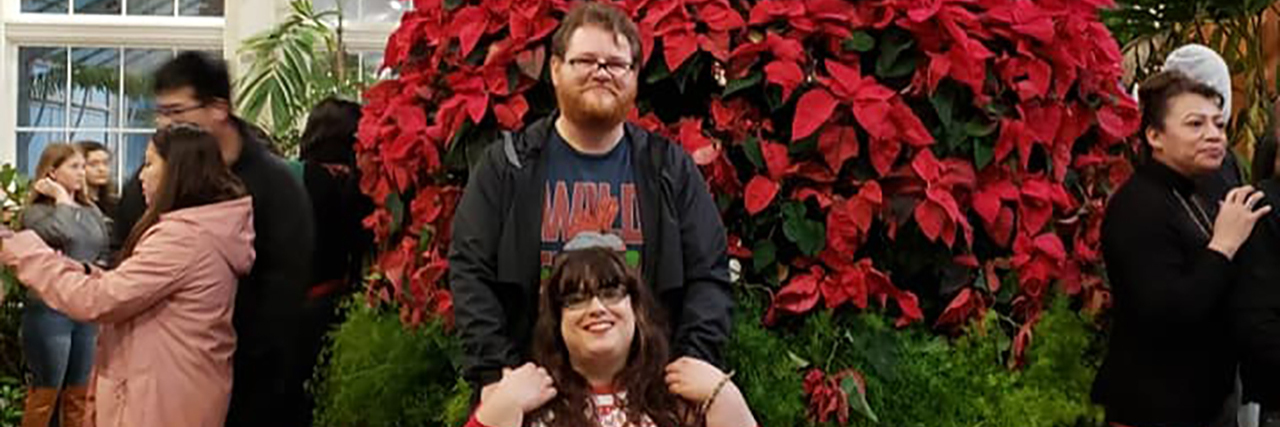A recent episode of Dr. Phil has garnered a great deal of attention, due Dr. Phil’s deeply insensitive remark about the success of interabled relationships, a romantic relationship in which one partner has a disability, and the other is able-bodied. Dr. Phil proclaimed on his show that an able-bodied partner of a disabled man could be “his lover or… his caregiver, but you can’t be both… It won’t work, 100 out of 100 times it won’t work.”
I am currently in an interabled relationship. I was born with a disability called spina bifida, have several other health challenges associated with spina bifida, and also struggle with depression and anxiety. I used to be afraid I would be too much for an able-bodied person to handle due to all my medical problems. I had nothing against dating other people with disabilities, but it was still a disappointing thought that I may not have the same opportunities to date as my able-bodied friends.
All that changed when I met my boyfriend. He has never once shied away from problems associated with my disability or helping me take care of them. Although he is not currently my primary caretaker, he has definitely taken on the role of a caretaker when needed and has made it clear he will continue to take care of me.
We’ve only been together six months, but he learned to take apart and put my wheelchair back together by our second date, has helped me twice when I have had severe stomach problems, and spent an entire weekend with me in the hospital when I needed emergency surgery. He has helped me get down stairs while still in my wheelchair, which is no easy task. He has talked me through multiple anxiety attacks and held me when my depression got particularly bad. He does it all without complaining or guilt-tripping. Anytime I feel awkward, sad or guilty about him taking care of me, he responds with kindness, gentleness and compassion. He teaches me something new about what it means to love every time we are together.
Once, after a particularly challenging day early in our relationship, I sat him down and I explained to him that my disability wouldn’t get better and could actually worsen over time. He was very calm as he told me he would always be there for me no matter what. That’s love. To be faced with the grossest, most difficult issues related to my disability just a few months into our relationship, learn that they can and will keep happening, and still say, essentially “I love you and we will face this together” showed me how much he values our relationship and how special he is.
I have faith in us and our love. He reaffirms that faith constantly. Every time he pushes my wheelchair. Every time he helps me get upstairs. Every time he comforts me when I cry. Every time he tells me and shows me how much he loves me. Every time he helps me manage difficult symptoms of my disability. He has already taken on a dual role of boyfriend and caregiver, and he hasn’t flinched once.
Maybe some interabled relationships don’t work out. But I doubt it will be because of the dual roles able-bodied partners take on. It certainly won’t be 100 out of 100 of the relationships that fail — at least not if my boyfriend and I, or the hundreds of interabled couples sharing their stories on social media, have anything to say about it. Our love is stronger than societal pressures and social norms.
To all the awesome interabled couples out there, keep doing what you’re doing. Keep being your loving, devoted selves. Keep speaking up about interabled relationships. Keep dispelling myths. Keep breaking social norms. Keep supporting and caring for each other. Above all, keep being awesome.
To those who doubt the strength of inter-abled relationships, I invite you to think about your current partners, or if you are single, think about a dear friend or relative. Would you love them less if they suddenly became ill or disabled? While aspects of your relationship would change, would the person that you love really be so different that your relationship would be irreparably altered or doomed to fail? I sure hope not. It’s the same for those of us in inter-abled relationships. Our able-bodied partners love us for who we are and choose to be with us, and we choose to be with our able-bodied partners. #100outof100 times.

